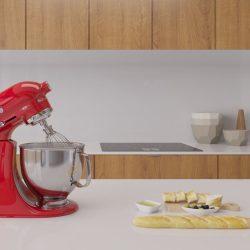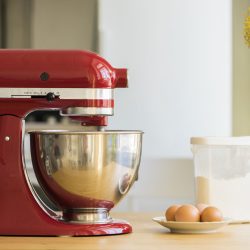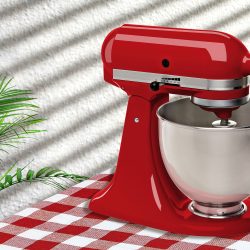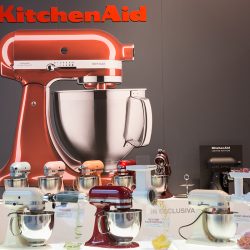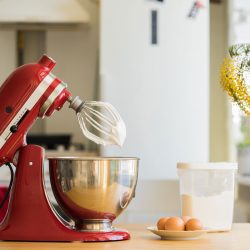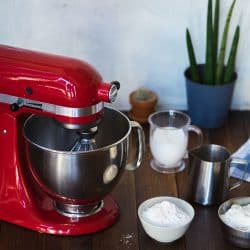In terms of a quality mixer, you can count on the KitchenAid mixer as it is created with a hard, sturdy body made of metal that makes it durable. However, while using this mixer, you suddenly notice a loud sound while operating it. Wondering if it is normal? You are on the right page! We've extensively researched these topics and have helpful information to share with you.
KitchenAid mixers normally make an airplane-like noise due to the motors they have. But it isn’t quite normal if you hear loud noises such as squealing, screeching, knocking or grinding. The following might be reasons for these loud noises:
- Old or Insufficient Gear Grease
- Increased Speed Level
- Ingredient(s) Being Mixed
- Worm Gear Failure
- Low-Quality Parts
- Motor Brush Worn Out
Continue reading to learn more about the KitchenAid mixer, especially the sound or noise it produces. We will also share some quiet models that might interest you if you plan to purchase them in the future. More valuable information is on the way, so let’s start it!
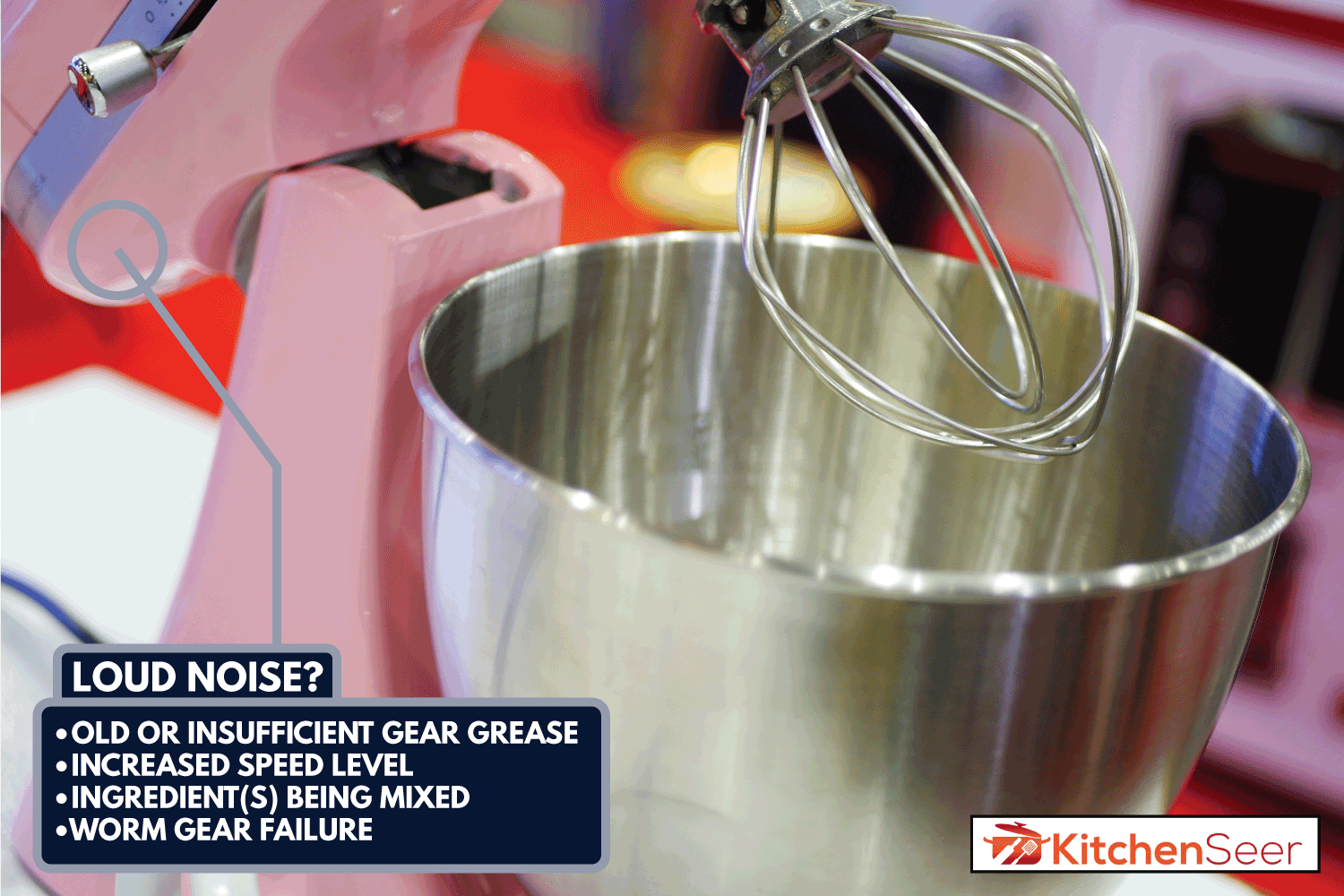
Why do KitchenAid Mixers Make Noise?
When it comes to reliable, long-lasting mixers, the KitchenAid mixer stands out. Since its creation, the KitchenAid mixer has saved numerous people's lives.
It is comparatively easy to use for food mixing. Simply combine all of the ingredients in the mixer, and it will quickly do the rest of the job. The KitchenAid mixer is renowned for its capability to process large quantities of thick food because of its sturdy and long-lasting metal frame.
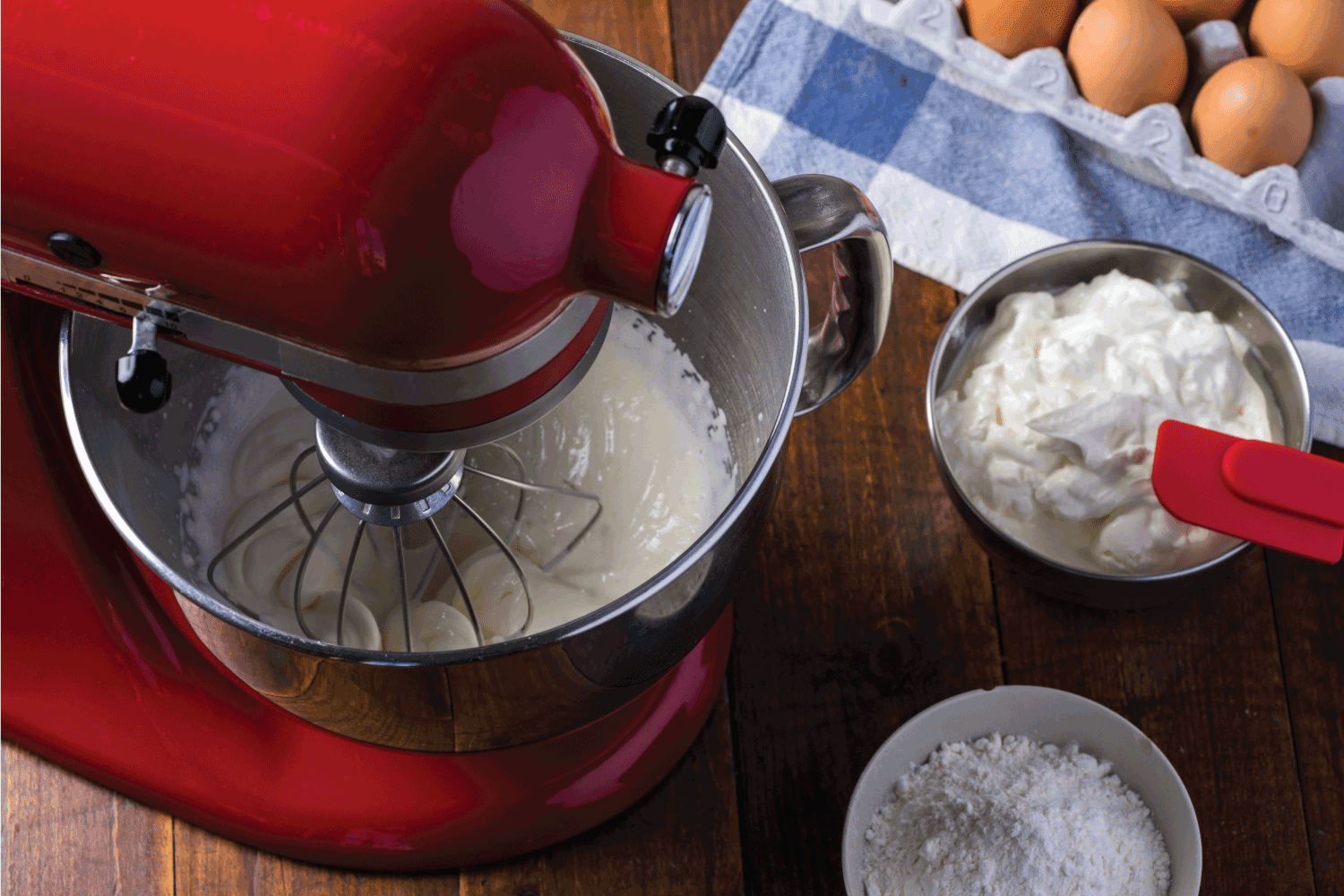
Unfortunately, KitchenAid is not an exception when it comes to noisy stand mixers. Due to the necessity for a larger motor and all-metal gears, larger mixers may be noisier than smaller mixers.
Direct Circuit (DC) and Alternate Circuit (AC) electric motors are used in KitchenAid mixers. When operating, despite having an "airplane-like" or harsh sound, brushless DC motors are quieter than AC motors, which produce the most noise.
When you buy a larger mixer after being used to a smaller one, it could first seem loud. Even among mixers that share the same model, there are distinct sound differences. The sound of squealing, screeching, knocking, or grinding is not normal for the KitchenAid mixer.
There are typically ten speeds on KitchenAid stand mixers. The noise level increases as soon as the lever is moved to increase speed. Definitely, it still makes noise even on the lowest setting.
A YouTube video below will let you hear the normal sound of two models of KitchenAid mixer in the lowest to highest settings.
What Are The Causes And Solutions Of The Loud Noises Made By KitchenAid Mixers?
Despite the KitchenAid mixer's reputation for versatility, loudness seems to be a common complaint among consumers. If you're seeking a fix for the noise issue with your KitchenAid mixer, here's how you approach it:
Old Or Insufficient Gear Grease
The KitchenAid mixer is made of sturdy metal due to its utility. High-tech components that make up the mixer include gear that needs to be properly and frequently greased for it to last a long period.
The mixer will eventually start to lose shape, the gear will start to lose quality, the blades will start to lose touch, and some other sections of the mixer will start to lose touch if it is not greased.
Also, the mixer may no longer have enough lubricant to keep the gears spinning smoothly after years of operation. As a result, your mixer will start to create a lot of noise when it is in operation.
If you determine that grease is the cause of the noise coming from your mixer, we advise that you open it up, remove the old grease, and then put new grease in. After applying, make sure the grease is not dripping. After this, your mixer ought to operate normally.
A video demonstrating grease replacement is shown on YouTube below.
Increased Speed Level
The speed of your mixer is another factor contributing to its loud noises. Older models of the KitchenAid mixer might not be able to handle high speed, as opposed to more recent ones.
The motor of the earlier models of KitchenAid mixers will work hard because of the way they are constructed, and this may generate noise. If you have an older model of the KitchenAid mixer, it is recommended that you lower the speed at which the mixer operates.
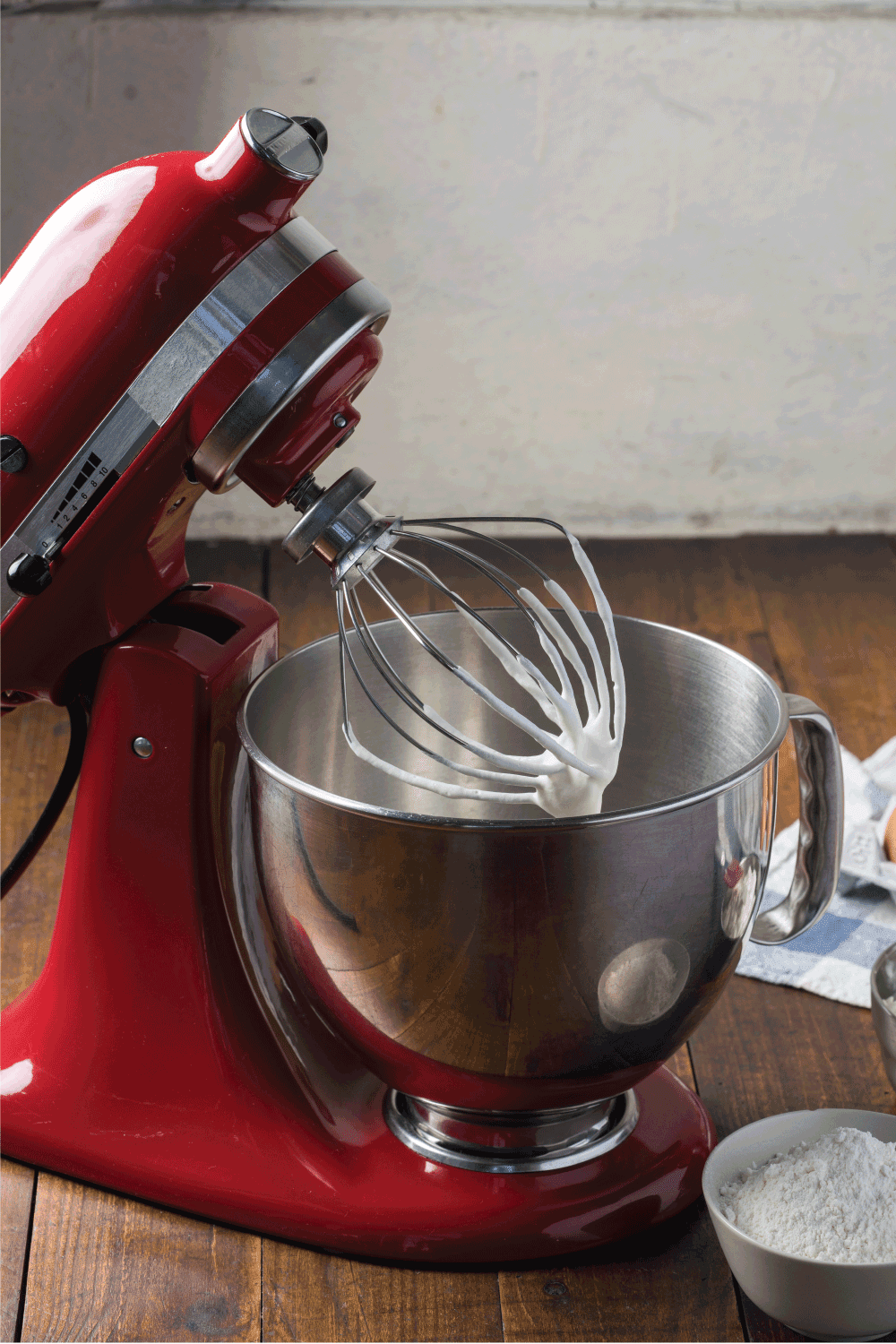
Ingredient(s) Being Mixed
You might find that your KitchenAid mixer is working fine in some circumstances. How come it still makes a lot of noise, then? It's possible that the kind of ingredient your mixer is processing is what's making it noisy.
A few ingredients are very noisy and rough. They frequently bounce in the mixer's container when you are blending or combining these ingredients, making a loud noise. To determine which component is the noisiest, all you need to do is pay attention to your mixer and ingredients.
Worm Gear Failure
The worm gear in your KitchenAid mixer is the most frequent noise source. It seems reasonable that if something is wrong with the mixer, you would inspect the worm gear. It is a plastic gear that is installed in the motor and prevents the motor from failing or burning out.
The sound of the mixer can be one indicator that the worm gear has stopped functioning. Without the worm gear, your mixer will make a loud noise.
We suggest that after determining that the worm gear is the source of the noise, you notify a technician and then get your mixer repaired. If your mixer is still under warranty, you can also take it in for replacement or free repair.
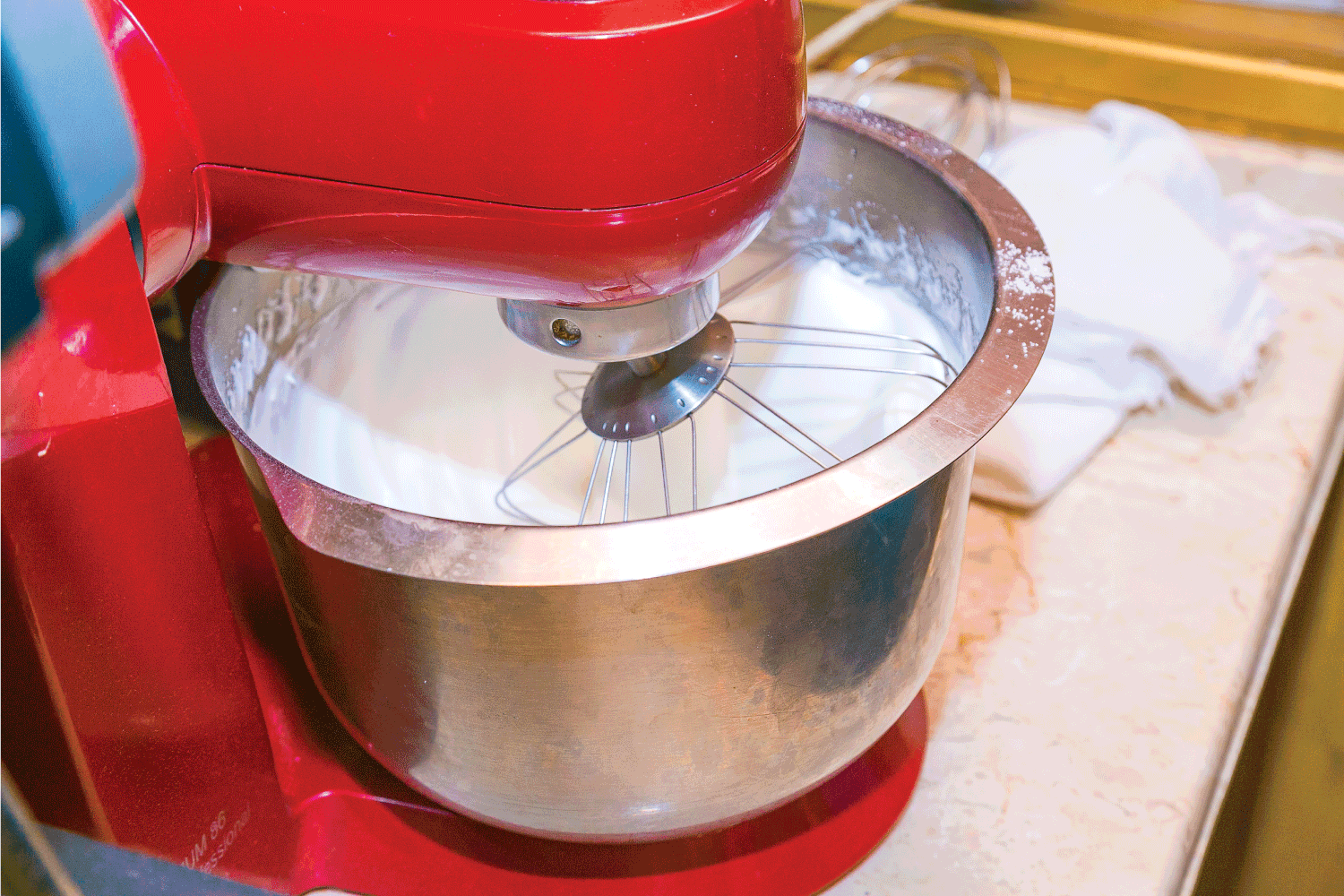
Low-Quality Parts
Although the quality of the KitchenAid mixer is uncompromised, there is a potential that you replaced some of its parts recently and used low-quality parts.
Cheap parts have a greater chance of producing more noise, including shoddy connections and a lack of lubricant in the mixer's high-stress areas. To solve the issue, you need to get your mixer inspected and make sure the substandard parts are changed out with better ones.
Motor Brush Worn Out
The KitchenAid mixer type with the brushed motor might be to blame for the loud noise. This is because the brushed motor has magnets and is made to produce rotational movements.
However, because the magnet has a higher polarity, the motor must work harder to grind the ingredients, creating a loud noise. In conclusion, if your mixer is equipped with a brushed motor, check if the stopper is at the bottom of the brush holder by looking at it.
If it is the case, you need to replace the motor brushes and line them up correctly if you want them to work again quietly because they are worn out.
A YouTube video below will show you how to replace the motor brushes in your KitchenAid mixer.
Which KitchenAid Is The Quietest?
Based on user’s experiences with KitchenAid mixers, the following are the mixers that operate the quietest:
KitchenAid 4.5-Quart (K45SSWH)
It is the number one quietest stand mixer. It has a mixing bowl made of stainless steel. The metal design of this stand mixer makes it durable and sturdy, and the mixer bowl has 59 contact points for superior mixing.
It's perfect for mixing activities in the kitchen because of its powerful DC motor with 0.33 horsepower (HP) and wattage of 250 watts. Also, there are 10 speeds on this stand mixer for nearly any task.
A 4.5-gallon stainless steel bowl that is washable can be used to mix up to 8 dozen cookies at once. You have easier access to the bowl due to the tilt-head design, making it simple to add ingredients. While mixing, the head of this device can also be locked in place.
Click here to see this KitchenAid 4.5-quart stand mixer on Amazon.
Other quiet KitchenAid mixers will suit your budget as they are cheaper than the quietest mixer mentioned above.
KitchenAid 8-Quart (KSMC895WH)
Many baking fans adore the 8-quart stand mixer, one of the quietest Kitchenaid stand mixers. Its strong DC motor makes it ideal for mixing tasks in the kitchen. It offers 1.3 HP and transfers 0.44 HP to the bowl for efficient and uniform mixing.
You have the option of using this Kitchenaid stand mixer with or without a bowl guard. Also, available in five eye-catching colors; empire red, nickel pearl, dark pewter, onyx black, and white to match your kitchen's design.
Click here to see this KitchenAid 8-quart commercial countertop mixer on Amazon.
KitchenAid 7-Quart (KSM7586PCA)
This stand mixer is one of the biggest, strongest, and quietest models available. With 10-speed levels ranging from slow stirring to vigorous beating, the 1.3-horsepower engine of this appliance blends and kneads ingredients quietly.
It has a bowl lift, mixing bowl (stainless) with a handle, metal knobs, dough hook, flat beater, and professional-grade elliptical whip attachment. Compared to the KitchenAid 8-quart stand mixer, this mixer model is a little bit smaller.
Click here to see this KitchenAid 7-quart stand mixer on Amazon.
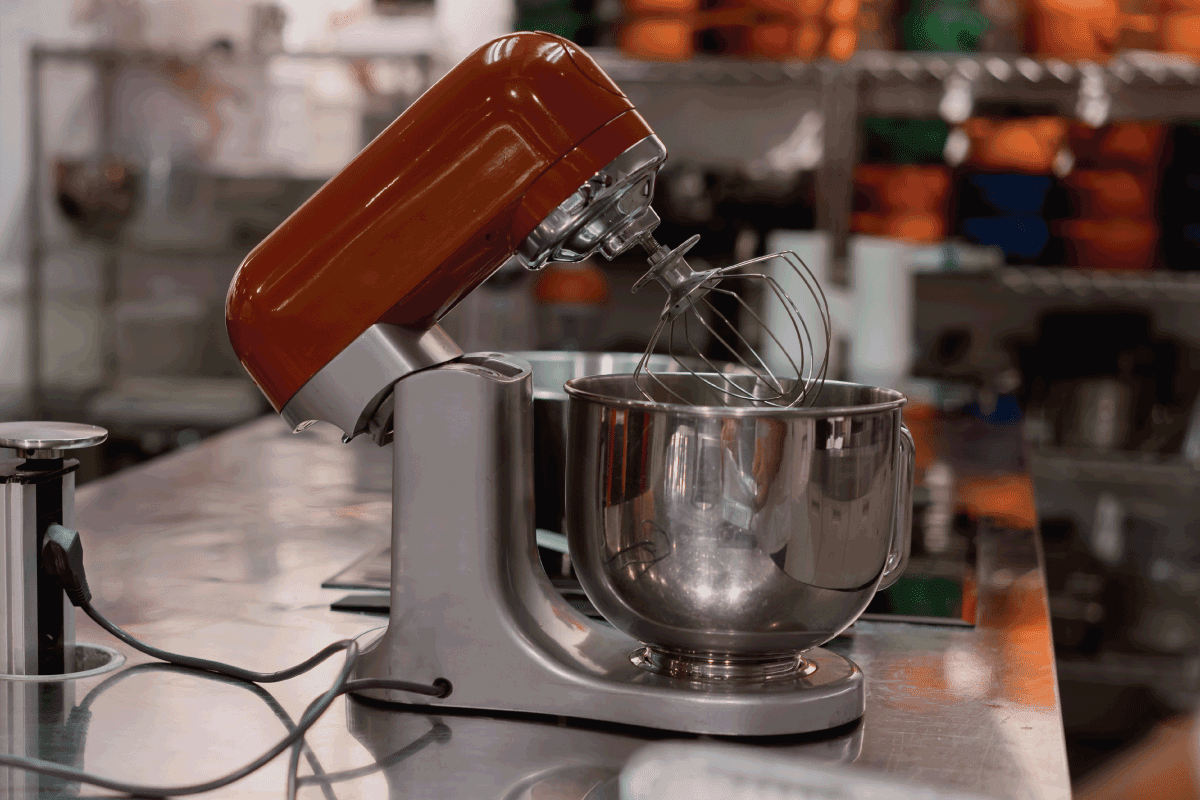
Conclusion
KitchenAid mixers normally generate grinding noises, but nothing too much. However, if the noise is quite loud, common causes are related to gear grease, speed, ingredients, worm gear, parts, and brushed motor.
The aforementioned solutions may assist you in resolving these noise issues. But if you are concerned that harm could result from repair by yourself, make sure to seek professional assistance or contact customer service if it doesn't work. They'll advise you on the best way to handle the situation.
We hope this post has provided you with more information about KitchenAid mixers and given you the motivation to bake your favorite batch of cookies. Before leaving, check out some interesting posts below that might also interest you.
How Long Can You Run A Kitchenaid Mixer?
KitchenAid Accessories For Your Stand Mixer




